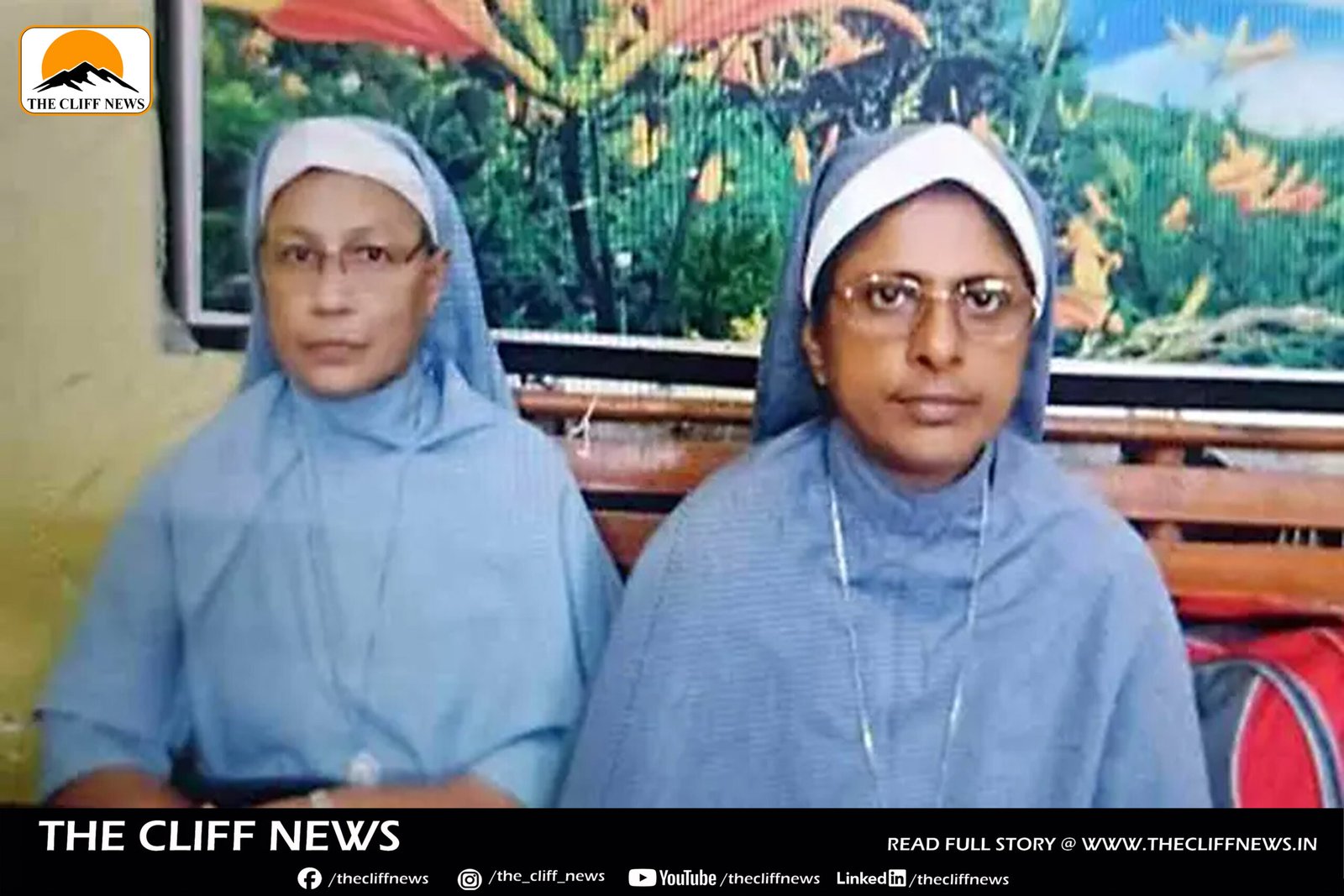Widespread protests erupted across Kerala and New Delhi on Monday over the arrest of two Catholic nuns at Durg Railway Station in Chhattisgarh, with both ruling and opposition political parties in Kerala denouncing the charges as false and communally motivated.
Sister Vandana Francis and Sister Preeta Mary, belonging to the Assisi Sisters of Mary Immaculate (ASMI), were arrested on July 25 on charges of kidnapping, human trafficking, and forced religious conversion. The arrests followed a confrontation at the station allegedly initiated by Bajrang Dal activists, who accused the nuns of attempting to convert three women — including an Adivasi minor — by taking them to Agra.
Bipartisan Political Backlash in Kerala and Delhi
In an unusual show of unity, Members of Parliament from both the Left Democratic Front (LDF) and the United Democratic Front (UDF) from Kerala staged a joint protest outside Parliament, calling the arrests “trumped-up” and a manifestation of rising anti-minority sentiment in BJP-ruled states.
UDF MPs carried placards accusing the Bajrang Dal of staging a kangaroo court, and condemned the Chhattisgarh police for acting under political pressure by placing the nuns in judicial custody without proper investigation.
Government Responses and Legal Status
Union Minister of State for Minority Affairs George Kurian stated that the matter is currently sub judice, but assured the media that BJP’s Kerala unit and the Catholic Bishops’ Conference of India (CBCI) are working toward securing an early resolution. BJP leader Rajeev Chandrasekhar is reportedly in talks with both central and state authorities.
In Parliament, Rajya Sabha MP John Brittas (LDF) moved an adjournment notice demanding an urgent debate on the “unjust” arrests and wrote directly to Chhattisgarh Chief Minister Vishnu Deo Sai, seeking the immediate release of the nuns.
Statewide Reactions and Religious Concerns
Kerala Chief Minister Pinarayi Vijayan sent a formal letter to Prime Minister Narendra Modi, urging intervention and justice for the detained nuns. Leader of the Opposition V.D. Satheesan visited the family of Sister Preeta Mary and criticized the arrests as “arbitrary and fascist,” warning that Christian clergy now fear openly expressing their faith in BJP-governed states.
“There is a climate of fear. Many priests and nuns now refrain from wearing their habits in public. Even Christmas and Easter celebrations are held in secrecy,” Satheesan remarked, calling the BJP in Kerala “a wolf in sheep’s clothing.”
Church Media and Clergy React
Deepika, the official mouthpiece of the Syro-Malabar Church, published a sharp editorial criticizing the BJP’s duplicity — courting Christians in Kerala while allowing Sangh Parivar groups to harass them elsewhere. The editorial also claimed that incidents of violence against Christians have increased since 2014, when the BJP came to power.
Yuhanon Mar Meletius, Metropolitan of the Orthodox Syrian Church, took a subtle jab on social media, suggesting that another “honouring” of church leaders by the Prime Minister in Delhi — a reference to the 2023 Easter Day meeting with Christian clergy — might be used as a tactic to mute dissent.
Kerala Ministers Call Out Silence of Church Leadership
Kerala General Education Minister V. Sivankutty criticized the Church leadership for not openly condemning the arrests. “Mere prayers won’t fix the hostile environment minorities face. Church leaders must speak truth to power,” he said.
Excise Minister M. B. Rajesh warned that any alliance with the Rashtriya Swayamsevak Sangh (RSS) is misguided. “The RSS views Muslims, Christians, and communists as internal enemies. Some must awaken to this reality before it’s too late,” he said.
VHP Defends Arrests, Claims Underage Victim Involved
In response to the backlash, Vishwa Hindu Parishad (VHP) Kerala general secretary Anil Vilayil defended the arrests, alleging that the CBCI was concealing facts, and that the women accompanying the nuns included an underage tribal girl, a key point in the police case.
As legal proceedings unfold, the case is expected to become a flashpoint in the ongoing national debate around religious freedom, minority rights, and the role of law enforcement in communally sensitive situations.



